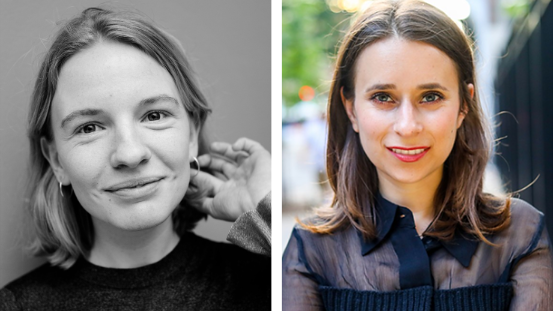CJS Student and Graduate Chosen for FASPE Ethics Fellowship
Asta Kongsted and Britta Lokting Join Groundbreaking Program for Journalism Students and Early-Career Journalists
Asta Kongsted, '23 M.S., and Britta Lokting, '15 M.A., are two of 14 journalism students chosen for the 2023 Journalism Program of the Fellowships at Auschwitz for the Study of Professional Ethics (FASPE).
Now in its thirteenth year of operation, FASPE provides a unique historical lens to engage graduate students in professional schools and early-stage practitioners in six fields (business, journalism, law, design & technology, medicine and seminary) in an intensive course of study focused on contemporary ethical issues in their professions.
The FASPE Journalism Program offers an approach that differs from the usual classroom experience in journalism schools by providing a holistic curriculum that looks beyond the specifics of formal rules to focus on ethical problems faced by individual journalists in the various settings in which they practice. Fellows participate in a two-week program in Germany and Poland, which uses the conduct of journalists in Nazi occupied Europe as a way to reflect on journalism ethics today.
Daily seminars are led by specialized faculty who engage fellows in discussions, encouraging critical thinking about both the historical and the contemporary. The Journalism Program is strengthened by the diverse perspectives of its participants and its intense focus on the powers of place and context. The experience of the journalism fellows is enhanced by traveling alongside the medical and seminary fellows, who—in formal and informal settings—consider together how ethical constructs and norms in their respective professions align and differ.
“By educating students about the causes of the Holocaust and the power of their chosen professions, FASPE seeks to instill a sense of professional responsibility for the ethical and moral choices that the fellows will make in their careers and in their professional relationships,” said David Goldman, FASPE’s founder and chairman.
FASPE studies the perpetrators to emphasize the essential role of professionals and to ask how and why they abandon their ethical guideposts. The FASPE Journalism Program examines the role of journalists and the profession of journalism more broadly during the Nazi period, underscoring the reality that moral codes governing journalists can break down or be distorted with devastating consequences. With this historical background, the journalism fellows are better positioned to confront contemporary issues.
The 2023 Fellowship is scheduled to take place in Germany and Poland over the course of two weeks this summer (subject to health considerations). The Journalism Program will be led by Mark Lukasiewicz, dean of the Lawrence Herbert School of Communication at Hofstra University, and Sarah Stillman, staff writer at The New Yorker.

Asta Kongsted is a journalist, currently pursuing a master's degree at Columbia University Graduate School of Journalism. A former editor at the Danish media Føljeton, she writes about climate, health, and the intersection of politics and culture.
Kongsted joins a diverse group of 84 FASPE fellows across all six programs who were chosen through a competitive process that drew applicants from across the U.S. and the world. FASPE covers all program costs, including travel, food and lodging.

Britta Lokting is an independent journalist in New York with a focus on magazine and longform feature writing. She has written for The New York Times, The Washington Post Magazine, The New Republic, VICE, and elsewhere. Her stories have covered national issues such as wildlife, climate change, anti-government groups, and public lands disputes. She graduated from the Columbia Graduate School of Journalism in 2015 and served on the board of the Newswomen's Club of New York for six years.
Lokting joins a diverse group of 84 FASPE fellows across all six programs who were chosen through a competitive process that drew applicants from across the U.S. and the world. FASPE covers all program costs, including travel, food and lodging.
FASPE maintains long-term relationships with its fellows in order to sustain commitment to ethical behavior and to provide a forum for continued dialogue. To date, FASPE has over 750 alumni.
Visit here to learn more about FASPE and its programs.
